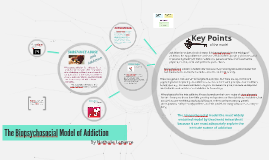14 Detox, and the treatments that follow, can take place in inpatient or outpatient settings:14 Inpatient treatment is any treatment requiring the specific to live at the center while receiving services. Inpatient programs are often housed in healthcare facilities or standalone treatment centers and differ in period, with longer inpatient treatment frequently referred to as residential treatment.
Outpatient treatments permit the private to participate in services during the day and sleep in their own bed during the night. Outpatient is usually a much better suitable for people with less severe addictions and/or strong social networks. Outpatient treatments may continue for many years and levels of care consist of: Partial hospitalization programs (PHPs).
Intensive outpatient programs (IOPs). Somewhat less extensive than PHPs, IOPs offer in between 6 and 9 hours of treatment every week. Drug Rehab Facility Requirement outpatient. This is the least time intensive outlet for outpatient care, offering hour-long sessions weekly or month-to-month. Someone who finished inpatient detox may transition to some form of continuous treatment to preserve their momentum, such as property treatment, PHP, IOP, or basic outpatient.
Another option for people presently in or ended up with treatment is support system. Support system are meetings arranged and run by individuals in healing that concentrate on fellowship, continued focus on sobriety, and giving back to others as a way to remain drug-free. For lots of, dependency treatment is a long-lasting procedure with continuous professional treatment and aftercare options to keep healing.
3 Easy Facts About How To Get Help With A Drug Addiction Shown
3 Whether you think dependency is an illness or not, everyone can concur that dependency is a major issue that adversely impacts the lives of individuals using substances along with individuals in their lives. The suffering that occurs with dependency can be immense, however treatment uses a ray of expect the future.
( 2018 ). Grant, J. E., Potenza, M. N., Weinstein, A., & Gorelick, D. A. (2010 ). Introduction to Behavioral Addictions. The American Journal of Drug and Alcohol Abuse, 36( 5 ), 233241. http://doi. org/10. 3109/00952990. You can find out more 2010.491884. fo National Institute on Drug Abuse. (2018 ). Holden, T. (2012 ). Addiction is not a disease.
Heyman, G. M. (2013 ) - how does drug addiction affect the family. Dependency and Choice: Theory and New Data. Frontiers in Psychiatry, 4, 31. National Institutes of Health. (n. d.). American Psychiatric Association. (2013 ). Diagnostic and analytical manual of psychological conditions (5th ed.). Arlington, VA: American Psychiatric Publishing. National Institute on Substance Abuse. (2018 ).

( 2016 ). National Institute on Substance Abuse. (2018 ). Drug Abuse and Mental Health Providers Administration. (2016 ). National Institute on Substance Abuse. (2018 ). Natioasnal Institute on Alcoholic Abuse and Alcoholism. (n. d.). Compound Abuse and Mental Health Providers Administration. (2015 ). Cleansing and Substance Abuse Treatment.
See This Report about How To Help Someone With Drug Addiction
Dependency, medically referred to as a compound use condition, is a complicated disease of the brain and body that involves compulsive use of one or more compounds despite severe health and social consequences. Dependency disrupts areas of the brain that are accountable for benefit, inspiration, discovering, judgment and memory. Addiction is defined as an illness by a lot of medical associations, including the American Medical Association and the American Society of Addiction Medication.
Hereditary threat factors represent about half of the probability that an individual will develop addiction. what is the difference between drug abuse and drug addiction. Addiction involves changes in the performance of the brain and body due to consistent usage of nicotine, http://kameronablw777.theglensecret.com/our-how-to-prevent-relapse-in-drug-addiction-diaries alcohol and/or other compounds. The consequences of untreated dependency typically consist of other physical and mental health conditions that require medical attention.
People feel satisfaction when fundamental requirements such as appetite, thirst and sex are satisfied. In most cases, these feelings of pleasure are triggered by the release of specific chemicals in the brain, which strengthen these life-sustaining functions by incentivizing the individual to repeat the behaviors that produce those fulfilling feelings (eating, drinking and procreating).
With time, continued release of these chemicals causes changes in the brain systems associated with benefit, inspiration and memory. The brain tries to return to a balanced state by minimizing its response to those rewarding chemicals or releasing tension hormonal agents. As an outcome, an individual might need to utilize increasing quantities of the substance simply to feel closer to regular.
The 7-Second Trick For How To Get Rid Of Drug Addiction
The person might also prefer the substance to other healthy satisfaction and might dislike normal life activities. In the most chronic kind of the illness, an extreme compound use condition can trigger an individual to stop appreciating their own or others' wellness or survival. These modifications in the brain can remain for a long time, even after the individual stops using substances.
The initial and early choices to use compounds are based in large part on a person's totally free or mindful choice, frequently affected by their culture and environment. Certain elements, such as a family history of addiction, injury or improperly dealt with psychological health disorders such as anxiety and anxiety, may make some individuals more vulnerable to compound use disorders than others.
Perhaps the most specifying sign of dependency is a loss of control over substance usage. Individuals do pass by how their brain and body react to compounds, which is why individuals with dependency can not manage their use while others can. Individuals with dependency can still stop using compounds it's simply much harder than it is for somebody who has not end up being addicted.
With the aid and support of household, buddies and peers to stay in treatment, they increase their possibilities of recovery and survival. A persistent illness is a long-lasting condition that can be managed but not cured. A lot of people who engage in substance use do not develop dependency. And lots of people who do so to a troublesome level, such as young people during their high school or college years, tend to lower their use once they take on more adult responsibilities.

All about Which Of The Following Is A Hallucinogen That Is Being Tested As An “Anti-addiction” Drug?
For them, dependency is a progressive, relapsing disease that requires extensive treatments and continuing aftercare, tracking and family or peer assistance to manage their healing. The bright side is that even the most extreme, chronic type of the disorder can be workable, typically with long-lasting treatment and continued tracking and assistance for healing.
While the first use (or early stage use) may be by choice, once the brain has actually been changed by dependency, many specialists think that the person loses control of their behavior. Choice does not figure out whether something is an illness. Cardiovascular disease, diabetes and some types of cancer include individual options like diet plan, workout, sun direct exposure, and so on.
Others argue that addiction is not a disease due to the fact that some individuals with dependency improve without treatment. People with a moderate compound use condition might recuperate with little or no treatment. People with the most severe type of dependency generally need extensive treatment followed by long-lasting management of the disease.
Others attain healing by going to self-help (12-step or AA) meetings without receiving much, if any, professional treatment. In all cases, expert treatment and a series of healing supports ought to be available and accessible to any person who establishes a compound use disorder. Dependency is a treatable disease.